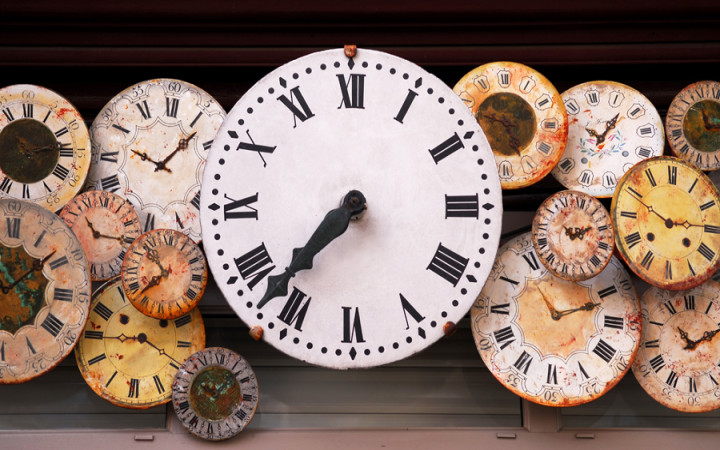Today’s Wonder of the Day was inspired by Faith. Faith Wonders, “how did the person who made the first clock know what time it was” Thanks for WONDERing with us, Faith!
As you make your way through a typical school day, you're probably very aware of what time it is. School probably starts around 8 or 9am. You probably know exactly what time recess and lunch occur. You're probably also aware that school gets out around 2:30 or 3:30pm. How do you keep track of all these different times?
Fortunately, thanks to modern technology, there's no shortage of timekeeping devices you can rely upon. At home, you probably have at least one clock on the wall. You may also have appliances, such as a microwave or an oven, that have clocks.
Some kids wear a wristwatch to keep track of the time throughout the day. In lieu of a wristwatch, other kids might rely upon a smartphone instead. At school, every classroom likely has a clock on the wall.
Have you ever WONDERed, though, what people did before modern clocks were invented? How did they know what time it was? How did they keep track of appointments? How did they know when they needed to be somewhere?
Although we can't know for certain how the earliest human beings kept track of the time, scientists believe they probably relied upon the natural world around them. For example, historically, humans have relied upon the movement of the Sun across the sky to track time.
Historians believe many ancient peoples, including the ancient Babylonians, Egyptians, Chinese, and Hindus, divided the Sun's cycle into different timekeeping periods. The ancient Egyptians, for example, built tall obelisks that would cast shadows to help divide the day into sections.
These obelisks worked in much the same way as sundials, which were a popular means of timekeeping long ago. Of course, sundials didn't help much at night or on cloudy days. To help keep time when it wasn't sunny, ancient peoples also learned to track the movement of the planets and constellations after dark.
Other devices were developed over time, including hourglasses and water clocks. These devices relied upon the time it would take a particular substance, such as sand or water, to move from one part of a container to another. Rather than clocks, though, these devices were more like timers.
How did people long ago set up a meeting at a certain time in the future? Some historians believe many people relied upon a technique as simple as pointing to an area of the sky. When the Sun reached that point, that's when you would meet the next day.
Of course, humans, being the clever creatures we are, relied upon a variety of natural solutions to the problem of timekeeping. For example, many people simply trained their bodies to wake up at the first light of dawn. Others may have relied upon animals, such as roosters, as alarm clocks.
If people had to be up before dawn, they might have relied upon the full bladder method. By drinking a lot of water before going to bed, they would be assured of waking up in the middle of the night to go to the bathroom!





